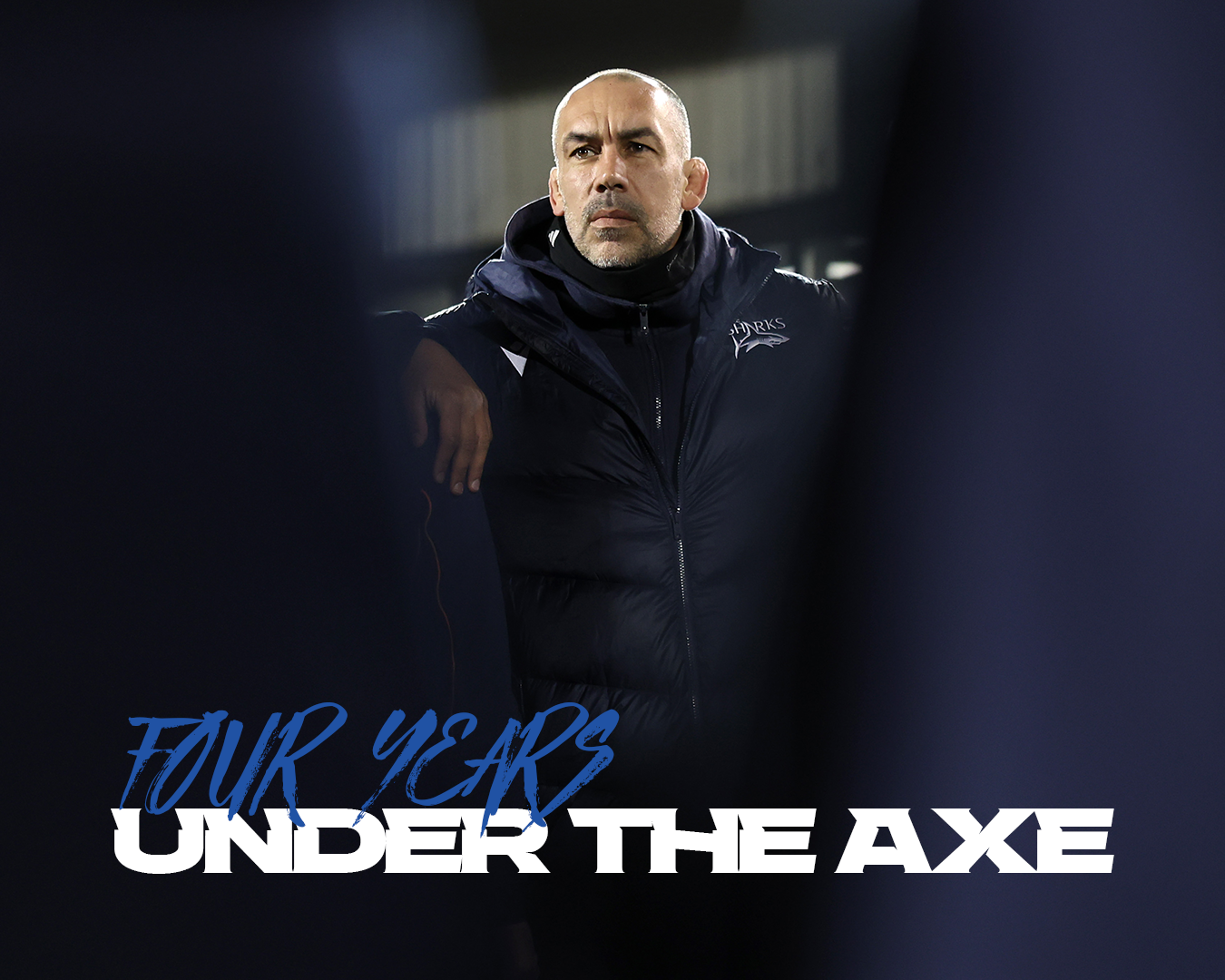
By Tom Jeffries
When Steve Borthwick announced his 2025 Six Nations squad and included eight Sale Sharks players, many associated with the club saw it as a chance to stress that Northern rugby cannot keep slipping under the radar.
Since joining the club as Director of Rugby in January 2021, Alex Sanderson has, somewhat quietly, revolutionised a “sleeping giant” of English rugby, and forced them into the country’s conversation.
In that time, the squad has changed beyond recognition (with just nine survivors), the coaching team has also turned over, and the club has harnessed a new identity based firmly on its northern roots.
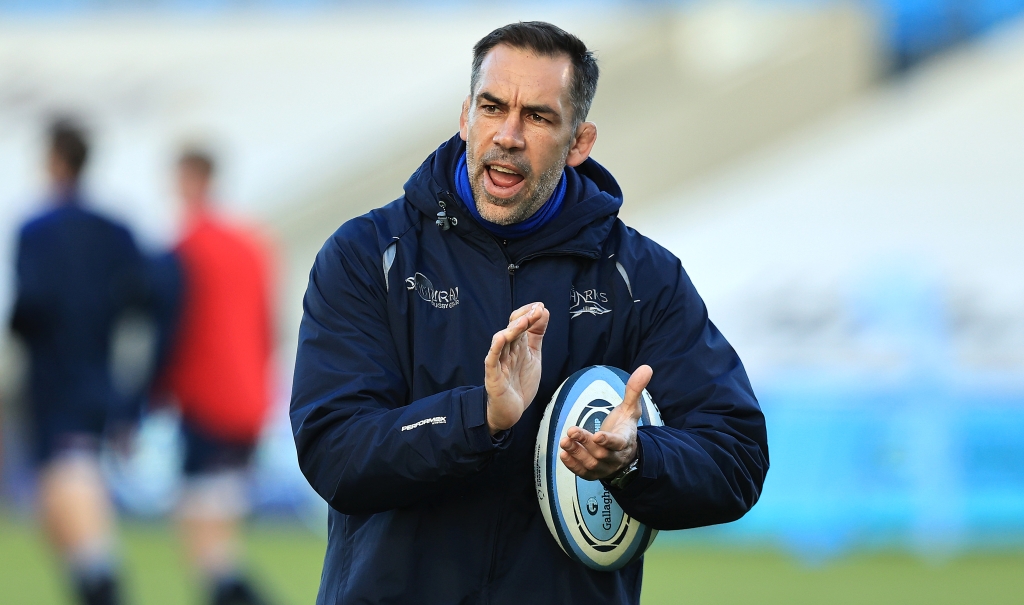
Within that, Sanderson has had his own rollercoaster ride in his first, and potentially last director of rugby role. Amidst asking close friends to move on, arriving to training dressed as a pimp, and saving his job in his second season, his four years have ultimately been Sale’s most successful since their sole Premiership title win in 2006.
The four year mark is a time for reflection in rugby realms of World Cup and Lions cycles. Sanderson doesn’t celebrate it, nor many other milestones beyond the usual anti-stress glass of wine over dinner his wife and young son. But when asked to revisit his first few weeks at Sale, he realises what a steep learning curve it was.
“It doesn’t feel that long yet when you look back at a lot of the changes we’ve been able to bring about, it could feel like a lifetime”, says Sanderson. “There’s not a day or a week where there’s not a curveball. The simple days where everything goes to plan is the exception.
“At Saracens, I was shielded by the fact I was solely focused on rugby and coaching, whereas here you’re managing 150 people, then this position. You’re basically managing a medium sized business, and, ultimately, the on-field performance helps drive everything like sponsorship and ticket sales.
“I still get it wrong in terms of life harmony. I wouldn’t say life balance because it shouldn’t be a tit for tat. I’ll do this, then go home and try get something where I feel I’m not being a s**t dad, and I’m giving my wife the love that she needs as well as when I’m here giving all of myself into the club.”
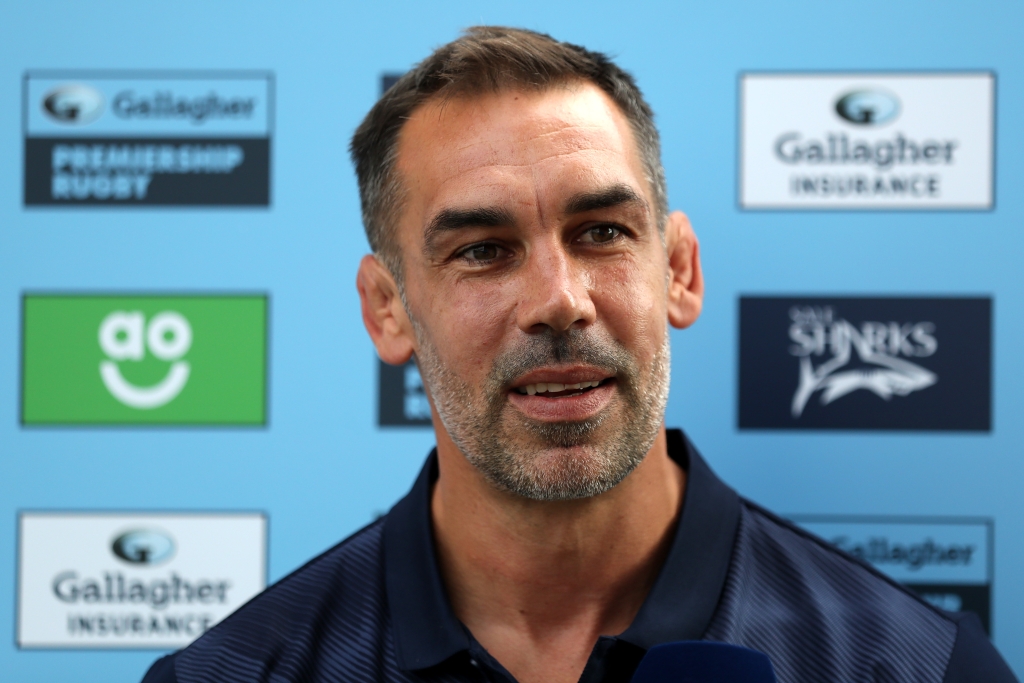
When Steve Diamond’s sudden departure from Sale was announced on December 8, 2020, it signalled a tectonic shift in the Premiership landscape. Perhaps masked by a seemingly endless negative COVID news cycle – an England fixture cancelled and Chris Robshaw and Richard Wigglesworth amongst 13 banned for breaching regulations in a Barbarians camp the same week – Diamond was calling time on a ten year stint during which he had become a shareholder in the club and overseen a change in ownership.
In his place, Sanderson would arrive after 17 years at Saracens, 13 as forwards and defence coach. He had been instrumental in cultivating their renowned wolfpack identity and was a cornerstone of their unprecedented success.
Despite the naturally jarring circumstances of any changeover, Sanderson led his side to a third place finish, their first play-off since they won the competition in 2006. He had inherited an already strong squad who finished fifth the previous season – a “sleeping giant” in his own words – with an interim head coach who had won both games in Paul Deacon. With a talented squad, the first changes would be to “align values”.
“I didn’t do any coaching to begin with”, says Sanderson. “It was just getting that buy in. I read somewhere that you can’t tell someone how to behave or what to value; if the boss eats bananas they eat bananas.
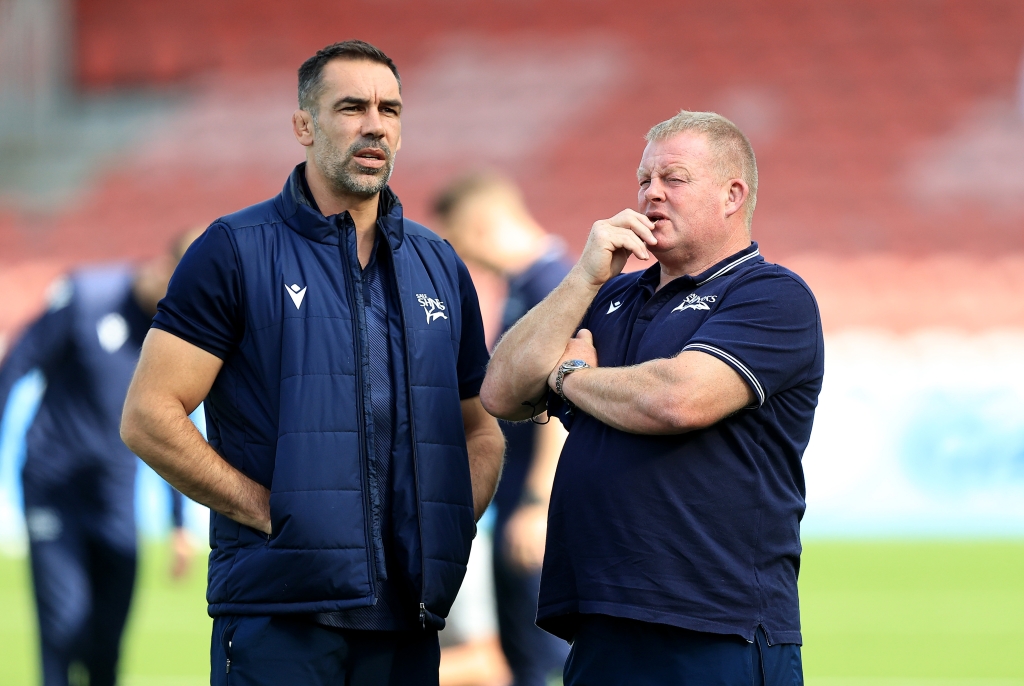
“The first part in getting an environment where we could have an honest conversation was me expressing my own vulnerability. The second part involved me going to everyone’s house to see them in their environment, to learn their story, to learn who they were before I could start to talk about how we wanted to do stuff. They were like ‘well this is the first time this has ever happened’. You start off on the right front, so they know I’m pretty sincere around my investment in them as people.
“I clicked with Manu certainly. I’ve got a lot of time for him because our conversations in terms of what he was getting offered and what he wanted to do with his life were very aligned. I wouldn’t say I had the friendliest relationship with Jono [Ross – the captain] but there was certainly one there of respect. I continued to keep that as part of me, my habitual behaviours. I try to catch up with every player at least once a month in different ways.
“The third thing was just consistency of preparation. There was a philosophy of just getting the best players out on the field, and I was like, ‘no, we need to get everyone better, and if there’s some collateral damage because we’re training really hard, then so be it’. Everyone needs to understand that if you don’t train on a Monday or Tuesday, you don’t play on a Friday. There’s no coasting.”
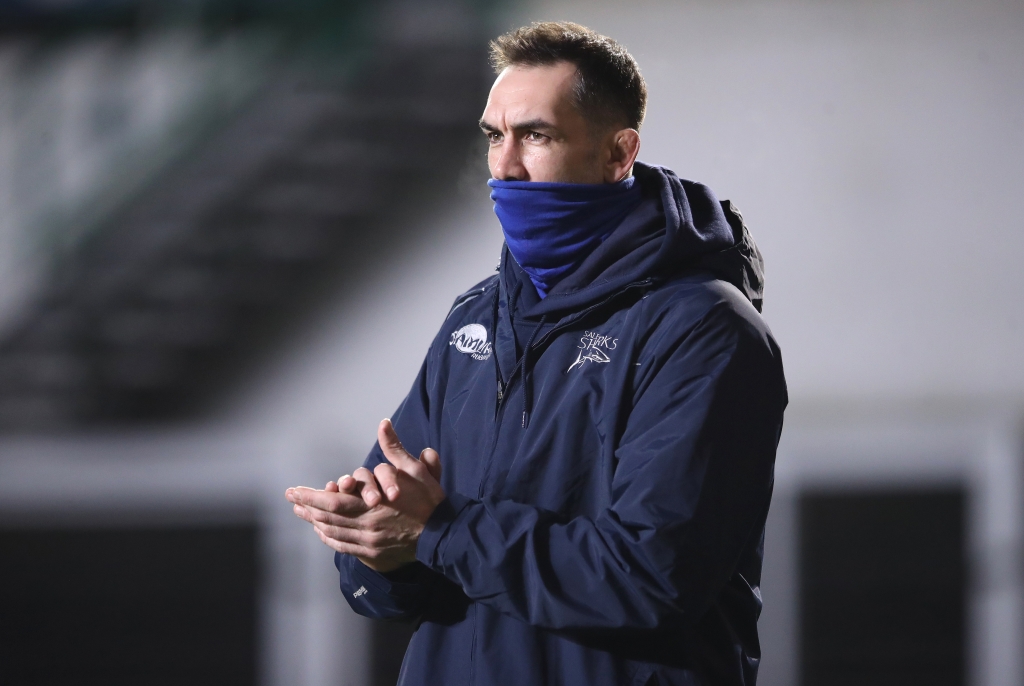
Within that, Sanderson was able to handpick Sale’s future and by his first full season the current spine of the England squad was coming to the fore. Academy grown talent like Tom Roebuck, Joe Carpenter, Arron Reed, Raffi Quirke, and Bevan Rodd all emerged to accompany the Curry brothers and senior players Sanderson instantly clicked with like Tuilagi and Byron McGuigan.
Crucially, they were all part of the squad that finished sixth in Sanderson’s full season in charge. Owing to sporadic availability of their South African contingent and rotation, Sale started poorly but in the new year were one of the best teams in the league, losing just twice in 14 games.
A play-off push was too little too late, but it did, however, kick off a trend of strong end-of-season finishes that the Sharks have come to rely on in each of Sanderson’s years.
“It’s definitely the team that finds form at the end of the season that wins cups,” says Sanderson. “That run was important just to rescue some of my own confidence that I could do the job.
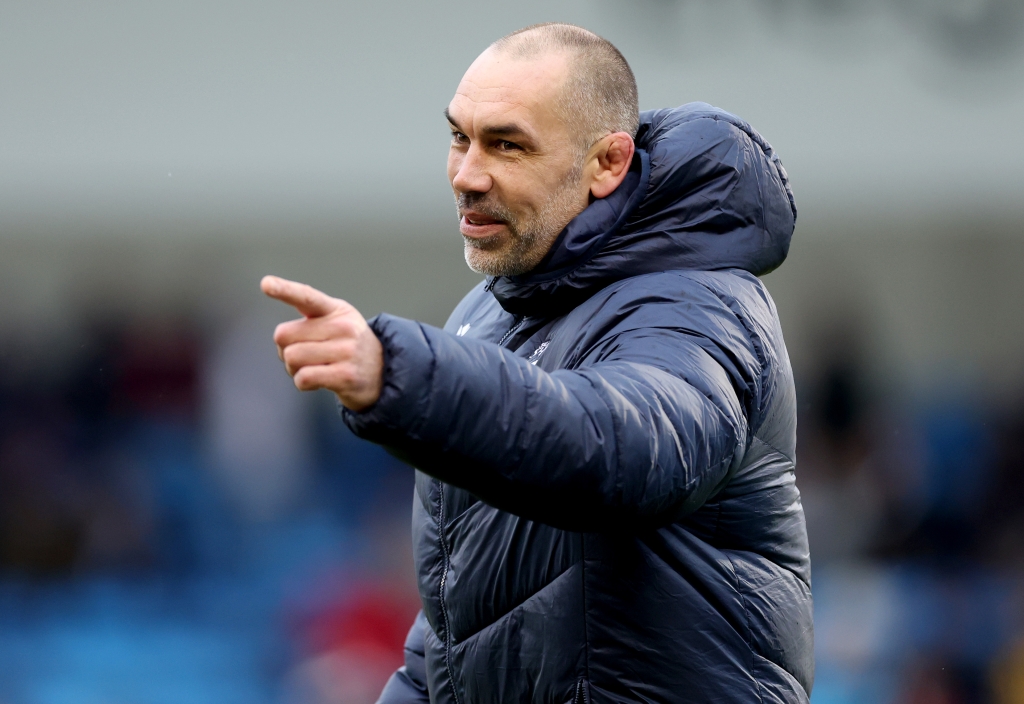
“We picked our skirts up and we were the best team in the second half of the competition from memory, so I kept my job having lost five of nine before Christmas.”
That season was also a turning point in recruitment strategy, with George Ford joining from soon-to-be Premiership champions Leicester Tigers. Although a statement signing, with the fly half citing many of the northern identity motivations Sanderson did, Ford was injured upon arrival. Much of that third season was a test of how effectively a relatively similar squad to the previous season could renew their emotional drive.
“That’s what makes a good coach into a very good coach,” says Sanderson. “The ability to reinvent, not just principles but how he delivers it and how the lads take it on. Season to season, as the players go from young men into middle aged, married men, their philosophies change. They want to be told at the start and then at the end they want to lead so you’ve got to shift your methodology.

“I’ve learnt what not to do more than what to do. I’ve never really followed a coaching manual, I’ve got no honorary level 4 coaching badge, I haven’t done any of that. But I’ve been sat as a player in meetings and witnessed sessions which lack energy, and I’ve just though ‘f**k’, things like that aren’t even enjoyable.
“There’s no buzz, I feel like this should be the best time of our lives. I didn’t have the best time of my life even though my career finished early and I’m like ‘well if I get a shot of doing this later down the line, I’ll do it the other way’.
Speaking to Sanderson, it’s clear why players want to put their heads in the spokes for him. His coaching is deeply personal, and it manifests in two closely linked ways. He’ll build a relationship with a player, one based in enjoying their rugby, and from there they share the same emotional experience that becomes the basis for future motivation.
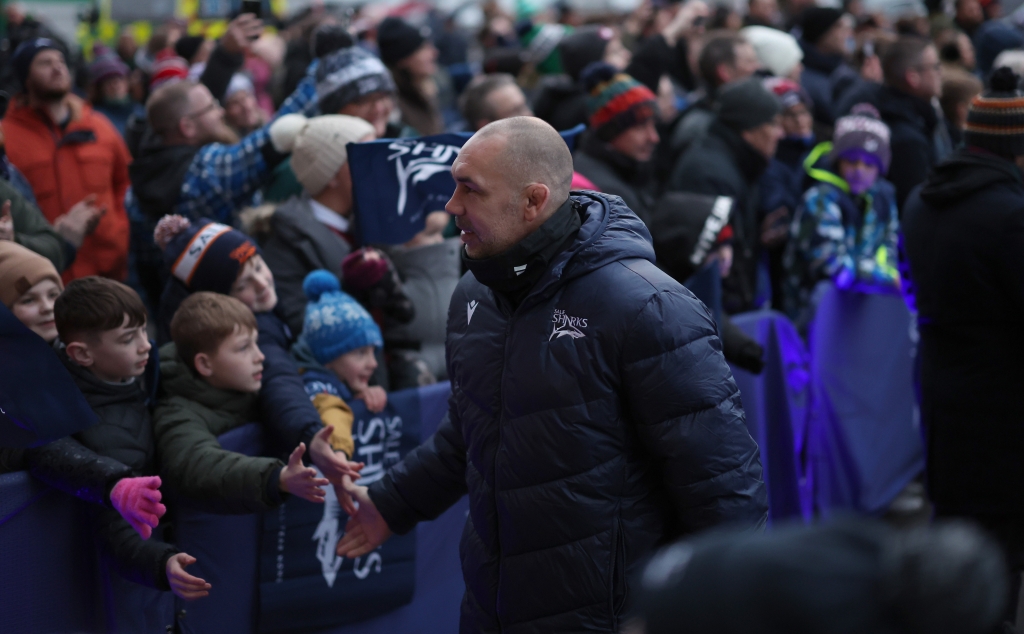
Sanderson’s out-of-the-box coaching methods have been well-documented over the years, from introducing Thai masseuses to creating wacky themes – the most recent being to ‘cage the bear’ ahead of Sale’s December 38-0 humbling of Bristol. His latest example is offering up a goose down coat that he stole from his wife for winning a number of scrum penalties or aerial tap backs.
Whilst self-admittedly guilty of trying to “outdo” himself on occasion, it creates relationships where, in the case of someone like Tuilagi, he can catch up with a former player and watch six hours amble by over two or three bottles of Malbec with ease.
“With all the will and heart in the world, some people just don’t want to go on the journey with you. I’d never had that because for 15 years I grew up with a group of boys and it was just about us sticking together, so being able to shelve that and not take it personally was personal growth for me.
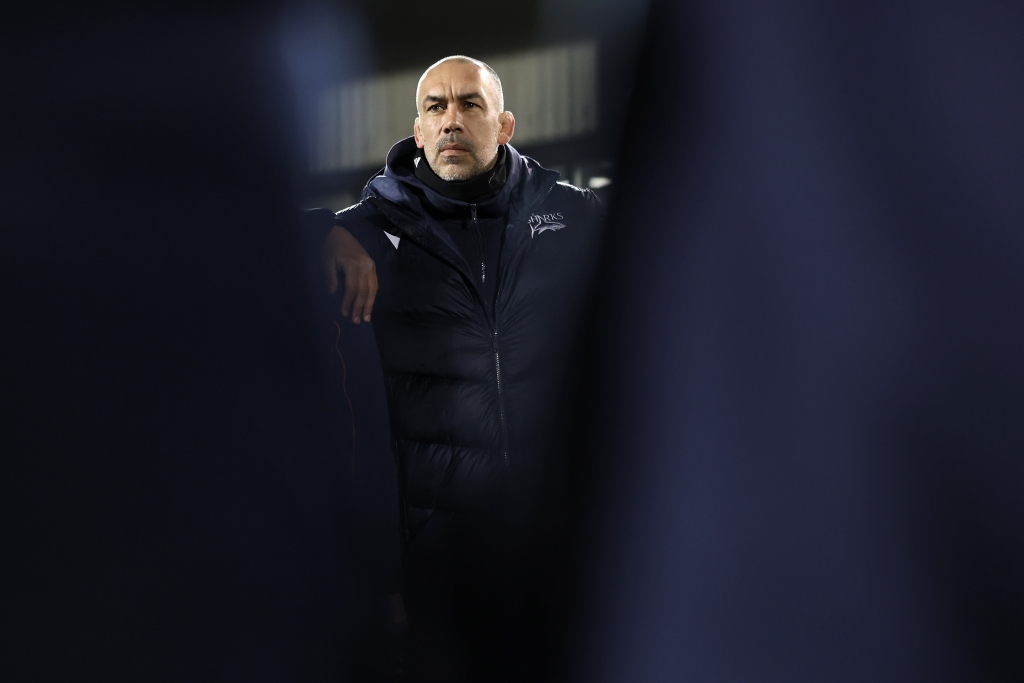
“This group, it’s probably got six to eight years in it. The recruitment shift is focused on retention, and whilst the team is largely different, the environment and values remain the same.
“If my job is to coach the same thing 60 different ways, and it is, you’ve got to be creative with it. But it’s the pain that drives you, it’s more long-suffering than the fleeting elation of success. You don’t ever want to feel how it felt in the worst of times.”
There’s plenty of that motivation to go around, with a Premiership final defeat to Saracens in 2023, and a semi-final defeat to Bath last season undermining what has been a hugely successful stint of three top four finishes in three years.
The answer, on pain being the biggest driver, came when asked about Bevan Rodd, and his immediate recall to scrum difficulties as much as four years ago when questioned about his January domination of Stormers stalwart Frans Malherbe.
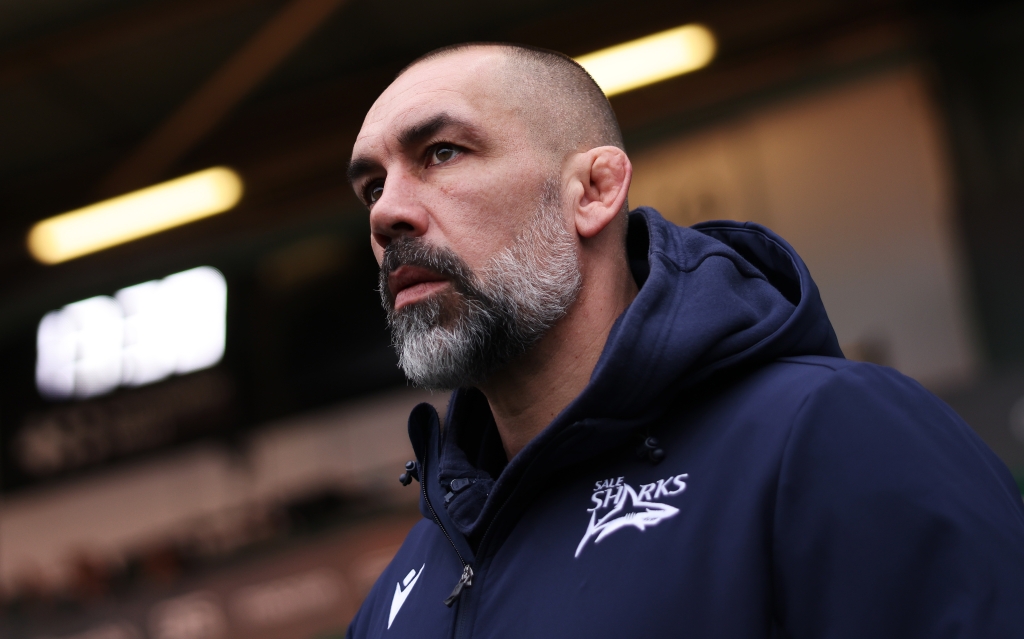
Ultimately, that linguistic alignment is the backdrop of his coaches condensing three gigabytes of footage into two minutes’ worth of footage that outlines up to three – ideally one – clear message each week. Binding all of that together is a collective identity that, since Sanderson’s appointment to Sharks head coach, has become synonymous with the club slogan: Northern Rugby Matters.
The phrase and variations of it are splashed around Sale’s Carrington training base. When Sanderson joined Sale, he cited the Northern connection as a big factor.
When George Ford signed, he echoed the sentiment. It’s something that may just keep Sanderson at Sale for as long as his rugby ambitions are sated.
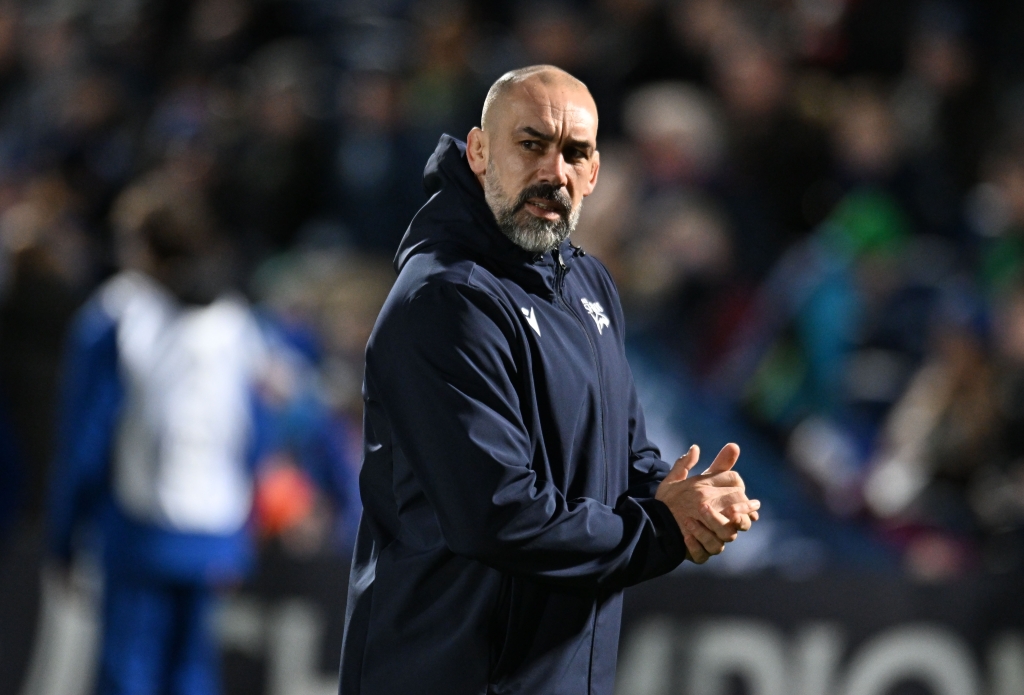
“It’s emotional just thinking about it,” says Sanderson. “You’re standing on the ground from where I was born, my dad was from, and his grandad and his grandad and his grandad, for 500 years, we’ve done the genes test. This is my territory, so personally it matters.
“It’s always there, bubbling as a higher purpose. Increasingly so towards the back end of campaigns, but we’ve brought it in a little bit earlier this season because if it’s going to be there then then why not embrace it now?
“To be honest I would’ve signed for longer than to 2027. I’m not going anywhere. But I understand the nature of sport, and World Cup cycles and that flexibility at that point in time. If the club doesn’t want me, I don’t want to stay here, if I’m not doing the job that I’ve signed up to do, not doing the job that we’ve talked about and making the region proud.
“I’ll go and do something, earn money easier somewhere else. I’m not saying in rugby – if I have to move from this place because of poor performance, I don’t know if I will stay in the game, because at the moment this is everything to me.”

